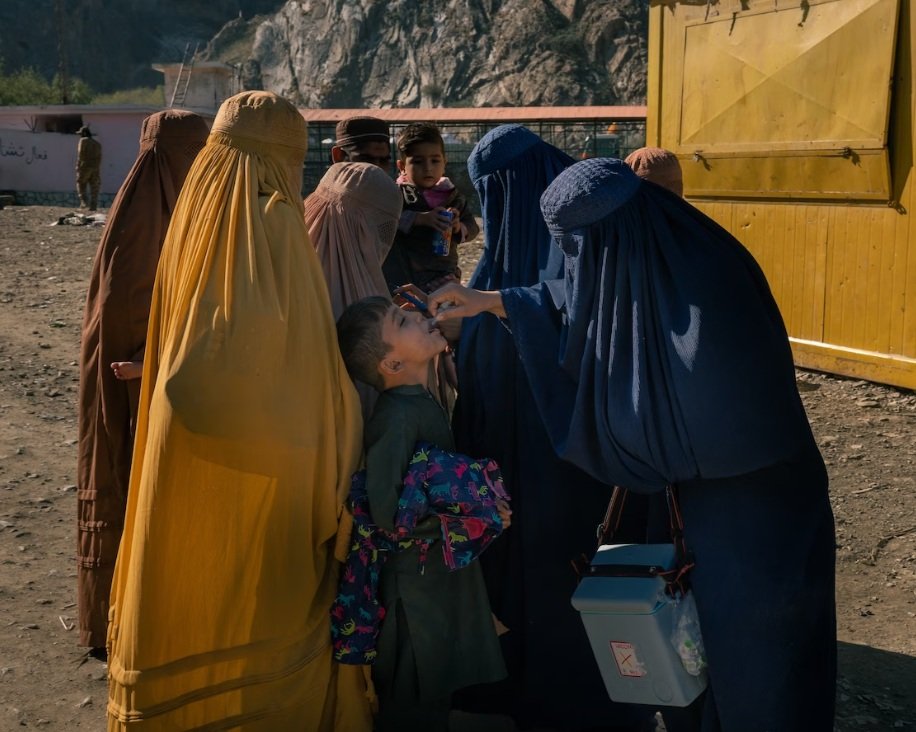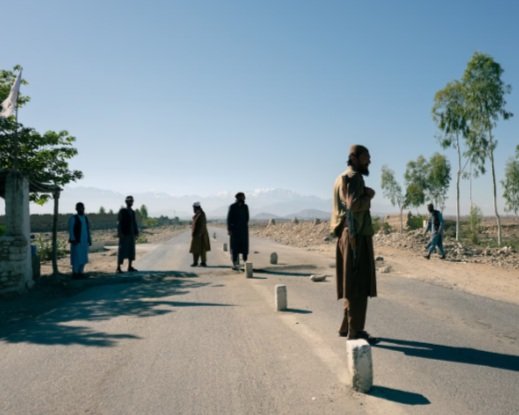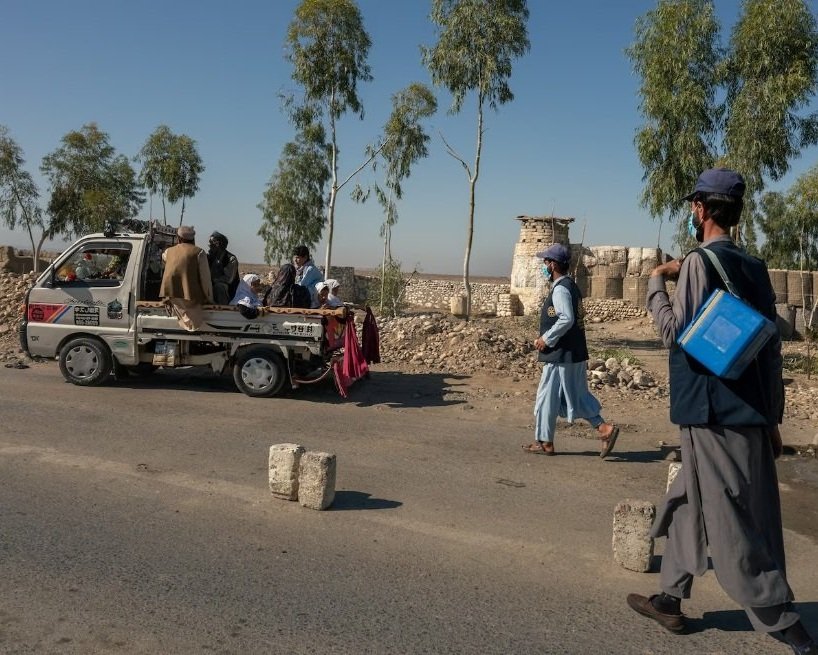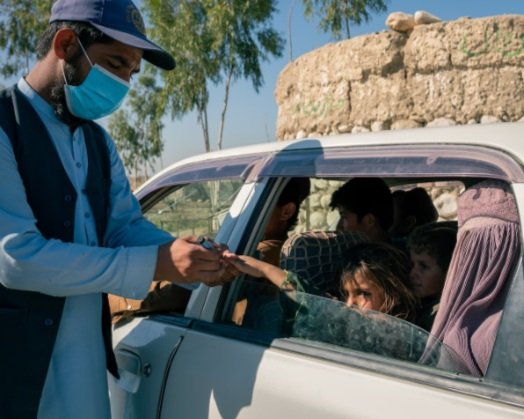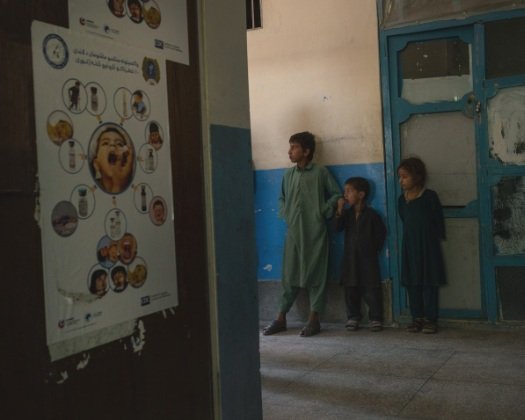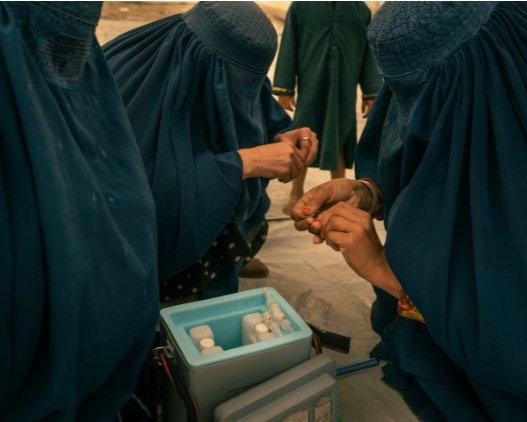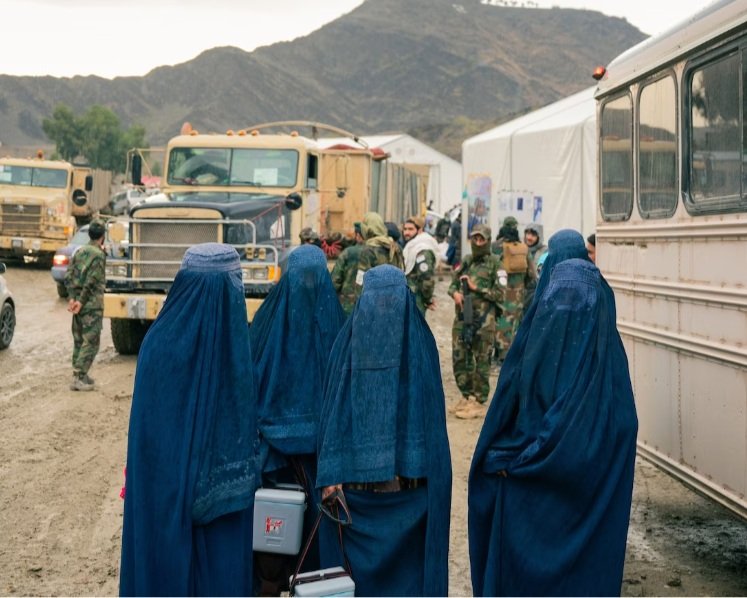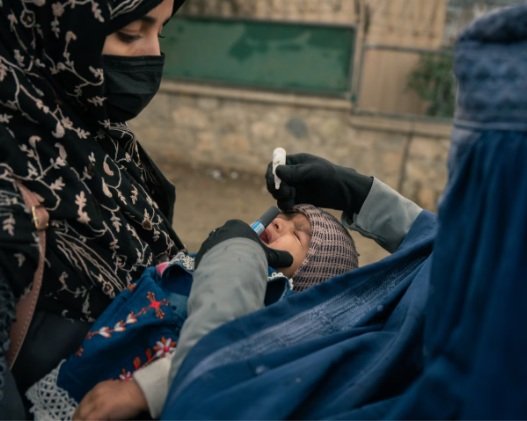After Long Banning Polio Campaigns, Taliban Declares War on the Disease
By Rick Noack for the Washington Post
Article Summary:
“During its 20-year armed campaign, the Taliban repeatedly banned door-to-door immunization campaigns, helping to make Afghanistan one of only two countries where naturally acquired poliovirus is still endemic. Two years after the Taliban took power, however, it has done an about-face, and its unexpected efforts may now represent the best shot in two decades at eradicating the highly transmissible, crippling children’s disease in Afghanistan.
Vaccinators in the country’s northeast, the center of the poliovirus outbreak, search cars for unvaccinated children at roadside checkpoints manned by Taliban soldiers. With no deadly attacks on public health campaigners reported in Afghanistan this year, they also feel increasingly comfortable venturing into remote virus hot spots that were previously far beyond their reach.”
“ ‘We now have access all over the country,’ said Hamid Jafari, director of the WHO’s regional polio eradication program. After years of disrupting public health campaigns and amplifying vaccine skepticism, the Taliban now faces challenges of its own making. But the Taliban-run government says it is committed to the effort, and the unlikely alliance between officials and internationally funded health workers — if still at times uneasy — reflects the considerable shift in the priority the government puts on vaccinating Afghans against polio and other infectious diseases.”
“ ‘It’s a priority for us,’ Zabihullah Mujahid, the Taliban spokesman, who for many years was tasked with announcing the group’s bans, said in an interview. The Taliban’s resistance to door-to-door campaigns, he insisted, was never ideological. Much of its opposition arose after the CIA, seeking to hunt down Osama bin Laden, ran a fake hepatitis vaccination program in neighboring Pakistan aimed at collecting DNA that matched that of the al-Qaeda leader. While U.S. officials say the program never succeeded in collecting DNA from residents of the Abbottabad compound where bin Laden was later killed by U.S. Navy SEALs in 2011, the intelligence effort fostered distrust of vaccinators across the region and exposed them to a wave of deadly attacks after the ploy was revealed.”
“‘We didn’t dare to go to villages for funerals of relatives out of fear that we’d be shot there,” said Abdul Rahman Ahmadi Shinwari, a vaccinator. On a recent day, Shinwari was at work at the Afghan border crossing of Torkham, accompanied by Taliban soldiers. ‘It’s a relief to be able to just stand here today with these men,’ he said.”
Changed minds
“Qari Najib Ur Rahman, who manages an immunization team in Afghanistan’s northeastern district of Achin, said claims by local villagers that vaccines are un-Islamic and Western conspiracies disappeared virtually overnight after the Taliban takeover.”
“Vaccination volunteers in Achin, long a poliovirus hot spot, said the Taliban’s endorsement of immunizations has led to a significant overall decline in vaccine holdouts over the past two years, from around 230 cases per campaign to around 60 most recently, even as the number of children reached by vaccinators here has more than doubled.”
Public health hurdles
“Increasingly, the primary obstacles to vaccination in Afghanistan are practical and not ideological. At Achin’s district hospital, 37-year old Tahsildar was late for a vaccination appointment for his 1-year old nephew, who was wrapped in a thick wool hat, and according to Tahsildar, was suffering from a cold that morning that had prevented them from leaving on time. ‘Of course, he will get ill if you don’t vaccinate him,’ the doctor scolded Tahsildar. Visibly embarrassed, Tahsildar revealed the real reason they had missed their appointment. There was no male family member who could have accompanied the child’s mother, he said, a requirement that is customary in many rural Afghan areas and emphasized by local Taliban officials. Tahsildar, a farmer, had to skip work for his nephew to be vaccinated.”
“Meanwhile, it is difficult to reach rural Afghan women with public health education because they are largely isolated in their homes, so it is harder to convince them of the benefits of immunization, vaccinators said.”
Pakistani Peril
“At least six polio cases were reported in Afghanistan this year, up from two last year, with a potentially much higher number of unknown infections. From northeastern Afghanistan, the virus is also believed to have spread via refugees and cross-border travelers to communities in Pakistan, where the virus is also endemic.
While Pakistan has made significant progress in fighting the virus over the past year, health officials worry that it could again start spreading more widely in Afghan refugee communities and, amid an ongoing Pakistani campaign to deport 1.7 million of them, make its way into new parts of Afghanistan, too. Refugees who were returning accounted for around half of the people who have in recent weeks rejected polio vaccines in Achin, said campaigners there. Many lived in Pakistani camps or neighborhoods where conspiracy theories continue to be propagated largely unchallenged.”
“In Pakistan, many vaccinators say their jobs are today as dangerous as they once were for their Afghan counterparts. In a predominantly Afghan neighborhood on the outskirts of Islamabad, vaccinator Kinza Khan, 23, said she at times only feels safe when accompanied by her husband. ‘There is always a chance of sudden clashes, of rage,’ she said. ‘Some believe it’s a foreign conspiracy to make our children infertile.’ ”
“The virus takes Pakistan and Afghanistan as one country,” said Shahzad Baig, who oversees Pakistan’s polio program. “As long as we don’t eradicate the virus from the other side, it will keep on coming back and forth.”
Lutfullah Qasimyar in Torkham, Afghanistan, Haq Nawaz Khan in Peshawar, Pakistan, and Shaiq Hussain in Islamabad contributed to this report.
Photo Source: Elise Blanchard for the Washington Post


